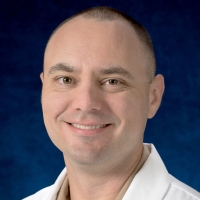This is an interesting program and I have to admit it’s pretty clever. To get rid of GMOs, you need BC docs in operational roles. These roles are nearly entirely within the standard primary care scope of practice with a few very narrow easily trained extra duties. You can’t claim that a radiologist is qualified to be a primary care physician. You’ve cut retention bonuses for FP dramatically. So, to fill the spots, create new “operational specialties”.
Lots of us, you and I among them, have been calling for GMO positions to be filled with board certified or board eligible physicians for a long time. I have to say I'm happy to see the Navy moving in this direction (and straight-through residency training too). We have some issues to work on, to be blunt. I can appreciate that leadership is operating under constraints that are not of their making and I certainly don't fault them for putting on a brave face and speaking in positive tones about it all. What else would you have them do?
So I was glad to see Adm Hancock address some of those questions and I'm always glad to see Capt Shofer posting here.
What concerns me most are three things where I see either no progress or backwards progress:
1) Steps have clearly been taken that devalue certain "non war critical" specialties. As just one example, they have singled out primary care (family medicine, internal medicine, pediatrics) and eliminated their ability to take 4- and 6-year retention contracts. These are physicians who are probably most appropriate to fill these GMO-like billets (certainly they're at less risk of skill atrophy and professional damage than procedure-focused specialties) and they're getting a clear signal that their presence and retention aren't important. This is genuinely astonishing to me - at a time with renewed emphasis on operational work, the physicians most suited to that work are being told to leave.
2) GME is in dire straits. Although COVID was (hopefully) a once-in-a-lifetime event and speed bump, the stress it put on the system exposed just how fragile our training programs are, just how close to the edge they're running in
good times. Our ability to offer excellent residency training to physicians, particularly "war critical" specialties that rely on sick/old/broken patients, has steadily declined over the last ~20 years as case load and complexity has shrunk. I'm presently faculty at the inservice program I graduated from 12 years ago and it is a shadow of what it once was. When I was a resident, rotations at other institutions were a valuable supplement to what I did at home. Now those rotations are core components of residents' education - and we're approaching the point (51% "away" rotations) where we won't meet ACGME requirements. Again, devaluing all of those "non war critical" specialties has consequences - we need the obstetrics and NICU and oncology and geriatric pipelines to feed the operating room with cases to train "war critical" surgeons and anesthesiologists. You can't run a quality tertiary-care hospital without them.
3) Skill maintenance and growth of attendings. So many of us are completely dependent upon moonlighting (while burning leave). ERSAs with local civilian institutions have been promised for a decade+ and haven't materialized in significant numbers. Flagship projects like the one they're standing up at Penn are neat, but as I've argued here before, PCS'ing a lucky handful of people to a non-deployable billet at civilian hospital for 3 years is NOT a solution. The solution - if we can't reclaim all the sick/old patients we've deferred - is for everyone (physician, nurse, techs, corpsmen) to spend 20% or 40% of their time working at a civilian hospital local to them. Every week. Every month. Every year. All the time.
As part of the MTF's baseline staffing and planning model, not just on a hopeful "if we can support it" basis. But that's not on the table. So the problem will remain unsolved at an institutional/leadership level, which leaves it to individuals to get it done on their weekends and leave.
As much as it pains me to say it, I've come around to the point of view that we'd be better off with a medical corps that was 90% reserve. Recruit and generously pay a core group of physicians who want to be attached to flight, dive, surface ship, and green units all the time. For the reservists, 3-4 month deployments ... mobilization should be a 72-hour process of gear issue and team meeting, not a month of garbage powerpoints and scavenger hunts that everyone, and I mean everyone, knows are useless. You've been there - you know as well as I that it's wasted time. Fold every MTF into the VA system - GME would again flourish in a stable environment full of sick and old people.

 mccareer.org
mccareer.org
